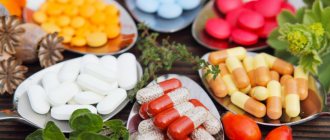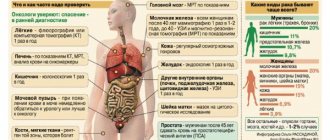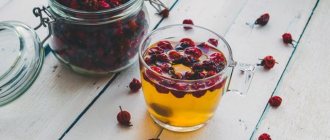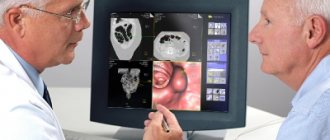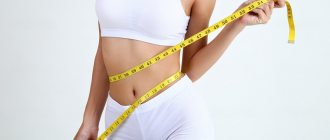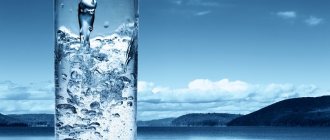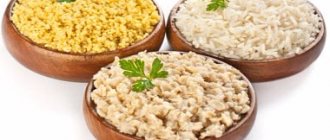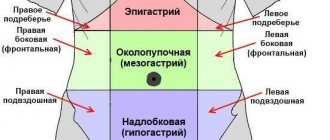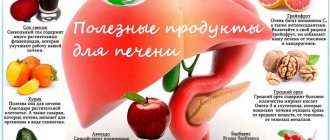The text is presented for informational purposes only. We strongly urge you not to self-medicate. When the first symptoms appear, consult a doctor. We recommend reading: “Why you can’t self-medicate?”
Intestinal peristalsis is the contraction of the muscle wall, due to which chyme moves through the gastrointestinal tract, where the digestion process occurs. When the peristaltic wave decreases or the movement of chyme stops, dynamic intestinal obstruction develops. It leads to severe intoxication of the body and disturbances of all types of metabolism with the development of a life-threatening situation and the need for intensive care and even surgical intervention.
For the normal digestion process, adequate peristalsis is necessary, for this it must have the following characteristics:
Medical products (drugs, medicines, vitamins, dietary supplements) are mentioned for informational purposes only. We strongly do not recommend using them without a doctor's prescription. We recommend reading: “Why can’t you take medications without a doctor’s prescription?”
- Undulating character. Contractions must occur in sequence with the flow of food.
- Normal temp. Slowing peristalsis leads to stagnant processes (rotting and fermentation) in the intestines, and acceleration leads to insufficient digestion.
- Rhythm. Rhythm disturbances and inconsistencies in the contractions of the muscle fibers of the intestinal tube lead to intestinal colic, accompanied by an acute pain syndrome of a spasmodic nature.
This is controlled by the main regulator of normal activity, which is the autonomic nervous system. Complex processes occur without human consciousness: different parts of the intestine contract at different rates, while acting organically.
In order for the intestines to work like clockwork, it is necessary to lead a healthy lifestyle, which includes proper nutrition, the absence of bad habits and an adequate physical activity. It is also necessary to avoid stressful situations and nervous tension.
If the peristaltic wave slows down, measures must be taken.
The concept of peristalsis
The intestine is the largest organ of the gastrointestinal tract, in which the final processing of food products, their neutralization and absorption of useful minerals into the blood occurs. If peristalsis (motility) is impaired, then all these processes are inhibited. This process causes harm to the body and inconvenience to the person.
When stool stagnates in the intestines, toxins begin to enter the bloodstream and poison the body, causing side symptoms.
Symptoms of intoxication and decreased intestinal motility include:
- frequent headaches;
- constant feeling of fatigue;
- heaviness and pain in the abdomen;
- loss of appetite;
- a person gains weight, although he eats the same as usual, or even less;
- the appearance of a rash on the face, possibly on the body;
- sleep problems;
- bloating, flatulence, which worsens after eating;
- changes in stool, there are fewer of them, they take on a denser shape;
- frequent and painful constipation, which can in rare cases be replaced by bouts of diarrhea;
- general malaise and even fever.
Neither an adult nor a child will be happy with such symptoms of intestinal arrest. Therefore, you need to force your intestines to work on their own, or seek help from a doctor.
Moreover, the second option will be much better, because the cause of weak motor skills can be absolutely any disease , or the normal functional state of the body. But to figure out what exactly caused the intestinal stoppage can only be done by conducting an examination and passing tests.
Products
To normalize the dynamic functioning of the gastrointestinal tract, it is necessary to adhere to a certain diet. List of allowed and undesirable products:
Be sure to read:
What foods cause constipation?
| Improves peristalsis | Worsening peristalsis |
|
|
Causes of weak peristalsis
Many factors influence intestinal function, and now we will try to find out which of them slow down and even completely stop peristalsis, and which can stimulate intestinal motility.
Reasons that slow down peristalsis:
- Unbalanced nutrition , when the diet is dominated by foods with high calorie content, foods of artificial origin (fast foods with a lot of spices and sauces and foods with added chemicals - chips, crackers), lack of regularity of meals, its speed (eating a sandwich on the way to office).
- Treatment with antibiotics or other drugs that reduce the balance of intestinal microflora.
- Diseases of the gastrointestinal tract of all parts, including the stomach, liver, and gall bladder.
- Tumors in the intestine, both small and large.
- Behavior of surgical intervention on the intestine.
- Inactive lifestyle , constant sedentary work, frequent climate change.
- Predisposition to constipation, its chronic course.
- Frequent stress, negative experiences.
- Disturbance in the functioning of nerves, improper innervation of the intestinal walls.
Factors that enhance intestinal motility:
- Constant walking and exercise.
- Maintaining a balanced diet.
- Compliance with the drinking regime is very important for constipation in order to soften the masses and improve their passage through the intestines.
- Using intestinal stimulation - massages and morning warm-ups.
- Normalization of lifestyle, regular and sufficient sleep, adherence to a schedule.
- Undergoing constant annual medical examination and timely treatment of intestinal diseases.
If your life mostly or even completely consists of items on the first list, then do not be surprised that intestinal motility weakens.
To prevent and correct this, live according to the points in the second list and then intestinal problems will leave you for a long time.
But if peristalsis is already impaired for some reason, then there are means to improve intestinal motility in adults and children.
A balanced diet is the basis of intestinal peristaltic activity
Most often, intestinal motility is disrupted due to poor nutrition - abuse of fatty, spicy, salty and fried foods, fast food, foods high in caffeine, and energy drinks. To restore normal peristaltic activity, it is necessary to include in the diet:
- fermented milk products - yogurt, fermented baked milk, kefir, natural yoghurts without flavoring additives,
- vegetables rich in fiber - radishes, all varieties of cabbage, carrots, turnips, beets, onions and green onions, tomatoes and cucumbers,
- fruits - apricots and plums, sour apples, persimmons,
- barley, oat and buckwheat porridge,
- flaxseed, corn and sunflower oils,
- nuts and dried fruits,
- yeast-free bread with added bran,
- seaweed and seafood.
It is very important to maintain a drinking regime and drink at least 1.5-2 liters of liquid daily. To restore intestinal motility, it is recommended to drink 200-250 ml of clean water every morning on an empty stomach. This helps to enhance peristaltic activity and normalize stool.
How to improve peristalsis?
Restoring intestinal function and enhancing peristalsis is possible only by using several types of treatment simultaneously, namely:
- Folk remedies. This is the first thing that is better to try than to swallow advertised pills, which can only cause harm if the diagnosis is not established.
- Drugs that stimulate bowel function can also be purchased at the pharmacy, but before doing so, you should consult a doctor so that he can select them for you individually and also prescribe the required dosage.
- An excellent way to enhance peristalsis is gymnastics. It helps increase blood flow to the intestines, as well as the pelvic organs, thereby helping to move feces forward through the intestines. Helps strengthen the walls of the large and small intestines.
- You can increase peristalsis by following a certain diet. Its main rule is that we eat and drink everything that is healthy, and don’t even try anything that is not healthy.
Improving peristalsis will largely depend on how the person himself feels about solving his problem.
If he carelessly does gymnastics, washes down pills with coffee after lunch at a pizzeria, then he will not be able to improve his bowel function.
In this case, the intestines did not work, do not work, and will not work. But for those who want to normalize the functioning of their intestines, we will tell you in more detail about each point in the treatment of weak peristalsis.
Other methods to improve peristalsis
Before applying the above measures, a consultation with a gastroenterologist should be carried out with the appointment of FGDS, colonoscopy and irrigoscopy to identify organic lesions.
Exercise and physical education
- I.P. - lying on his back. You need to slightly bend your knees and imitate riding a bicycle. Can be done several times a day for a few minutes.
- I.P. - lying on his back. You need to pull your legs towards your stomach with your hands, and then return to the starting position. Repeats several times.
- I.P. - lying on his back. The essence of this method is to raise both legs and try to throw them behind your head. It is necessary to repeat 15-20 times.
- I.P. - kneeling, palms resting on the floor, spine straight. It is necessary to lift first the left and then the right leg in a bent state. The exercise should be repeated 10 times for each lower limb.
- I.P. - kneeling, palms resting on the floor, spine straight. You need to take a deep breath, and as you exhale, bend your back down, relax your stomach, and stand in this position for a while. Then you need to return to the original position, while exhaling, pull in your stomach and bend your back as a cat would do (“house”). The exercise is done 25-30 times.
- I.P. – standing, arms along the body. During a deep exhalation, you need to pull in and out your stomach. Repeat this complex at least 5 times.
- I.P. - standing, hands resting on the sides. We walk in place, raising our knees high.
Self-massage also has a good effect, when a person, lying on his back, gently massages his stomach in a clockwise direction. The massage should be soft, gentle, without much effort.
ethnoscience
Before drinking pharmaceutical medicine, try these methods to enhance peristalsis :
Wheat bran
- Take two apples and grate them. Add to them a tablespoon of honey and two tablespoons of oatmeal. Squeeze the lemon juice and add it and a couple of tablespoons of warm water to the mixture. Eat it throughout the day.
- Grind plantain seeds and take a teaspoon of them with meals.
- A couple of tablespoons of wheat bran are washed down with a small amount of water or mixed with it and eaten for breakfast.
- Take ten grams of buckthorn root and pour half a liter of boiling water over it. Let the broth brew and drink it throughout the day instead of tea.
- Take two glasses of dried apricots and prunes and grind them in a meat grinder. Add to them a package of senna and two tablespoons of propolis. Pour in liquid honey, approximately 200 ml. Take this mixture before bed in the amount of a couple of teaspoons.
Grocery list
| Improves peristalsis | Worsening peristalsis |
|
|
Medicines
In order to increase intestinal permeability, laxatives are released. These can be tablets, powder, syrup, drops. All laxatives should be divided into three groups:
| Effect of drugs | Description |
| Drugs that affect peristalsis of the entire intestine. | Here you can use sodium sulfate or magnesium. But you should pay attention to the fact that these substances, increasing the osmotic pressure in the intestines, increase peristalsis. The process goes quite quickly, and the medications take effect after two hours, or even earlier. Therefore, you should not take them before your trip. |
| Laxatives acting in the small intestine. | These medications include oils. They envelop feces, facilitating their easy passage through the intestines. At the same time, they also speed up motor skills themselves. The effect of a laxative occurs within two to six hours. |
| Laxatives acting in the large intestine. | These are drugs from a group of irritants. They tone smooth muscles, toning the intestinal walls. You cannot use them yourself, as addiction and intestinal atrophy may occur. Only a doctor should prescribe such laxatives. Such drugs include Regulax, Guttalax, Bisacodyl, Laxigal and others. |
When should you consume foods that improve peristalsis?
The consumption of foods that enhance intestinal motility is indicated for people with frequent constipation.
An error in diet, an excess of fatty, spicy, sweet foods leads to the fact that gastrointestinal motility deteriorates, and a person begins to feel unwell. Stagnation of feces leads to pain, and metabolic products enter the blood, which can cause intoxication. Medical products (drugs, medicines, vitamins, dietary supplements) are mentioned for informational purposes only. We strongly do not recommend using them without a doctor's prescription. We recommend reading: “Why can’t you take medications without a doctor’s prescription?”
Gymnastics
To enhance peristalsis, an active lifestyle is very important, as well as gymnastic exercises that enhance intestinal motility, namely:
- the familiar “bicycle” exercise - spin imaginary pedals while lying on your back;
- You need to pump up your abs not only for a smooth tummy, but also for the intestines; 10-20 approaches are enough here;
- lying on your back, alternately raise your straight legs up;
- press your legs bent at the knees to your chest and clasp them with your arms, do this while lying on your back;
- in a knee-elbow position, lift your straight legs up one by one and bend your back;
- deep squats;
- You need to complete the complex by jumping rope or on the spot, a hundred times is enough.
Exercise
Physical activity significantly improves peristalsis. Basically, exercises should be aimed at the abdominal muscles. The following disciplines are useful for peristalsis:
- belly dance;
- yoga;
- Pilates;
- swimming.
A simple set of exercises that can significantly improve peristalsis and take only 10-15 minutes of time daily:
- "Scissors". Lying on your back, raise your legs 30˚ above the floor and cross them at a fast pace, imitating the movements of scissor blades for 1-2 minutes.
- "Bike". Lying on your back, raise your legs 90˚, bent at the knee joints, the movements are similar to pedaling a bicycle. Perform for 2-3 minutes, gradually increasing the pace and duration of the exercise.
- Run. A morning jog significantly stimulates all processes in the body.
- Breathing exercises. It can be done even while sitting at your desk in the office. It is necessary to take a deep breath, while the stomach protrudes, and while exhaling deeply, draw in the abdominal muscles as much as possible.
- "Mill". With your legs spread apart and your arms spread out to your sides, alternately bend towards your legs, reaching with the palm of your opposite hand, and make 10-15 movements to each leg.
Be sure to read:
Atonic constipation: causes, symptoms and treatment methods
Any other exercise to strengthen your abdominal muscles is also effective. A sedentary lifestyle does not contribute to the normalization of peristalsis. You must walk at least five kilometers per day.

